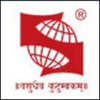How to become a Personnel Management Specialist
Overview, Courses, Exam, Colleges, Pathways, Salary

Overview
Who is Personnel Management Specialist ?
A Personnel Management Specialist, also known as a Human Resources (HR) Specialist, is a skilled professional who plays a pivotal role in managing an organization's workforce. They are responsible for various aspects of HR, including recruitment, employee relations, training, benefits administration, and compliance with labour laws. Personnel Management Specialists facilitate the smooth functioning of the workplace by ensuring effective communication between employees and management, handling personnel matters, and promoting a positive work environment. With expertise in conflict resolution, policy implementation, and strategic planning, they contribute to the organization's success by fostering employee well-being, engagement, and productivity. Personnel Management Specialists play a crucial role in shaping the organizational culture, managing employee development, and ensuring that the workforce aligns with the company's goals and values.
Typical day at work
What does Personnel Management Specialist do?
To be able to provide advice and suggestions on how to classify all Forest Service jobs.
To be able to arrange jobs using accepted position classification principles.
To be able to check pay and leave situations to determine, if problems genuinely exist with employees and advises supervisors to make sure employees are paid in accordance with the law.
To be able to follow qualification standards and employment measures to help managers recruit and select job applicants.
To be able to advice supervisors if there is any performance or disciplinary issue with their employees.
To be able to orient employees on the benefits available to them from the organisation.
To be able to help in labor management negotiations.
To be able to organise an employee development and safety program (performance appraisal, training, and awards).
To be able to support the Civil Rights and Affirmative Action programs in all areas of personnel management.
Abilities and Aptitude needed
What are the skills, abilities & aptitude needed to become Personnel Management Specialist?
Here are the essential attributes needed to become a proficient Personnel Management Specialist:
- Interpersonal Communication: Strong verbal and written communication skills are essential for interacting with employees, conducting interviews, and conveying HR policies.
- Empathy and Emotional Intelligence: Understanding and empathizing with employees' needs, concerns, and emotions contribute to positive employee relations and a healthy work environment.
- Problem-Solving Abilities: HR Specialists address various workplace challenges, conflicts, and employee issues by finding practical and fair solutions.
- Ethical Integrity: Upholding high ethical standards and maintaining confidentiality is critical in handling sensitive employee information and making fair decisions.
- Attention to Detail: Accurate record-keeping, documentation, and compliance with employment laws require meticulous attention to detail.
- Analytical Skills: Evaluating data, conducting surveys, and interpreting HR metrics help make informed decisions for effective personnel management.
- Adaptability: HR Specialists must adapt to changing workplace dynamics, regulations, and industry trends to ensure effective HR practices.
- Time Management: Efficiently managing multiple tasks, deadlines, and priorities is essential for handling various HR responsibilities.
- Conflict Resolution: Resolving, mediating, and promoting a positive work atmosphere requires strong conflict resolution skills.
- Legal Knowledge: Familiarity with labour laws, employment regulations, and HR best practices is crucial for compliance and risk management.
- Negotiation Skills: HR Specialists negotiate employment terms, benefits, and settlements while considering organizational and employee needs.
- Cultural Sensitivity: Understanding and respecting diverse cultural backgrounds helps create an inclusive and respectful workplace.
- Decision-Making: HR Specialists make decisions regarding hiring, promotions, performance management, and employee relations that impact the organization.
- Networking and Relationship Building: Building relationships with employees, managers, and stakeholders contribute to effective HR operations and employee engagement.
- Leadership Skills: HR Specialists often lead HR initiatives, programs, and projects that require leadership and influence.
- Change Management: Handling organizational change, such as mergers, restructuring, or policy changes, requires effective change management skills.
- Training and Development: Designing and delivering training programs that enhance employee skills and knowledge is a key aspect of HR.
- Data Management and Technology: Proficiency in HR software, data analysis tools, and HRIS (Human Resources Information Systems) is important for managing employee records and generating reports.
- Strategic Thinking: Contributing to HR strategies aligned with organizational goals and future workforce needs requires strategic thinking.
- Customer Service Orientation: Providing excellent service to employees, addressing their needs, and fostering a positive work environment are essential.
- Project Management: Managing HR projects, such as recruitment drives or employee engagement initiatives, requires effective project management skills.
- Organizational Skills: HR Specialists manage multiple tasks, events, and documentation, requiring strong organizational abilities.
- Conflict Management: Effectively addressing and resolving conflicts among employees or teams contributes to a harmonious workplace.
- Presentation Skills: Delivering training sessions, orientations, and presentations to employees and management demands effective presentation skills.
Salary
Salary for Personnel Management Specialist?
Salary of Personnel Management Specialists is as follows :
- Minimum Monthly Salary: Entry-level Personnel Management Specialists may earn a minimum monthly salary ranging from INR 25,000 to INR 35,000. These individuals are typically recent graduates or those starting their careers in personnel management or human resources.
- Maximum Monthly Salary: Experienced and senior Personnel Management Specialists with several years of experience, advanced degrees, and specialized certifications may earn anywhere from INR 60,000 to INR 1,20,000 or more per month. Those working in high-demand sectors such as talent acquisition, organizational development, or HR analytics may have higher earning potential.
- Annual Salary: The annual salary for entry-level or junior Personnel Management Specialists could be around INR 3,00,000 to INR 5,00,000. As Personnel Management Specialists gain more experience, take on leadership roles, and contribute to strategic HR initiatives, their annual income can increase from approximately INR 6,00,000 to INR 12,00,000 or higher.
- Highest Paying Jobs and Scope: Personnel Management Specialists working in multinational corporations, large enterprises, or industries with complex workforce needs may have better salary prospects. HR professionals specializing in talent management, compensation and benefits, or HR information systems may also command higher salaries. With the evolving nature of work, employee well-being, and the importance of effective HR practices, there is a growing demand for skilled Personnel Management Specialists in India. As organizations recognize the strategic value of human resources, specialists who can contribute to employee engagement, talent development, and organizational effectiveness are expected to have promising career growth opportunities.
Pathways
How to become an Personnel Management Specialist?
Entrance Exam
Entrance Exam for Personnel Management Specialist ?
Undergraduate Level
DU JAT
IPMAT 2018
NPAT 2018
Symbiosis Entrance Test (SET)
AIMA UGAT 2018
GGSIPU CET BBA 2018
Postgraduate Level
CAT (Common Admission Test)
AIMA-MAT (Management Aptitude Test)
XAT (Xavier Aptitude Test)
IIFT (Indian Institute Of Foreign Trade)
SNAP (Symbiosis National Aptitude Test)
NMAT By GMAC
CMAT (Common Management Admission Test)
IBSAT (IBS Aptitude Test)
MICAT (MICA Admission Test)
MAH - MBA/MMS CET (Maharashtra MBA Common Entrance Test)
Doctorate Level
Research management aptitude test R-MAT
Symbiosis University Ph.D entrance examination
UGC NET
XIMB-RAT (Research Aptitude Test)
IIIT Delhi PhD Admission Test
Faculty of Management Studies (FMS), Delhi University PhD entrance test
Aligarh Muslim University PhD Entrance exam
Indira Gandhi National Open University (IGNOU) Entrance Exam
Courses
Which course I can pursue?
Best Colleges
Which are the best colleges to attend to become an Personnel Management Specialist?
Industries
Which Industries are open for Personnel Management Specialist?
Personnel Management Specialists, also known as Human Resources (HR) Specialists, play a critical role in managing an organization's workforce, ensuring effective employee relations, and implementing HR policies and practices. They are needed in various industries to handle staffing, training, performance management, and other HR functions. Here are some industries where Personnel Management Specialists can find opportunities:
- Corporate Sector: Large corporations and multinational companies across industries hire Personnel Management Specialists to manage their diverse workforce and handle recruitment, training, and employee engagement.
- Information Technology (IT) and Tech Companies: With rapidly growing IT and tech industries, HR specialists are crucial for talent acquisition, retention, and workplace culture.
- Healthcare: Hospitals, clinics, and healthcare organizations require HR professionals to manage medical and administrative staff, ensure compliance, and handle employee well-being.
- Manufacturing and Industrial Sector: Personnel Management Specialists manage labour relations, workforce planning, safety compliance, and employee training.
- Financial Services: Banks, financial institutions, and investment firms hire HR specialists to manage talent, handle regulatory compliance, and oversee employee benefits.
- Retail and Consumer Goods: HR professionals manage staff for retail outlets, customer service centres, and distribution networks.
- Hospitality and Tourism: Hotels, restaurants, and travel companies need Personnel Management Specialists for staffing, training, and maintaining high-quality guest experiences.
- Energy and Utilities: Personnel Management Specialists in this sector handle workforce planning, safety training, and employee engagement in energy production and utility companies.
- Education and Academia: Schools, colleges, and universities hire HR specialists to manage faculty, staff, and administrative personnel.
- Consulting Firms: HR consultants provide expertise to various industries, assisting with HR strategies, organizational development, and talent management.
- Nonprofits and NGOs: Organizations in the nonprofit sector need HR professionals to manage volunteers and staff and ensure compliance with labour laws.
- Government and Public Sector: Public agencies and government departments require HR specialists to manage civil servants, handle recruitment, and ensure fair labour practices.
- Media and Entertainment: HR specialists manage talent acquisition, contract negotiations, and employee relations in media production, broadcasting, and entertainment companies.
- Real Estate and Property Management: Personnel Management Specialists handle staffing for property management companies, agencies, and construction firms.
- Transportation and Logistics: HR professionals in this sector manage drivers, operators, and logistics personnel, ensuring compliance and safety.
- Automotive Industry: HR specialists handle staffing, training, and employee relations in automobile manufacturing and dealership companies.
- Aerospace and Defense: HR professionals ensure compliance with government regulations, manage specialized talent and handle workforce planning.
- Telecommunications: HR specialists manage telecommunications companies' staffing, employee development, and compliance.
- Pharmaceutical and Healthcare Research: HR specialists in research organizations handle staffing, training, and employee management in pharmaceutical and medical research.
- Startups and Entrepreneurship: Emerging startups often hire HR specialists to establish HR policies, manage growth, and create a positive work culture.
internship
Are there internships available for Personnel Management Specialist?
Internships provide valuable hands-on experience for aspiring Personnel Management Specialists (also known as Human Resources Specialists) to apply theoretical knowledge, gain practical skills, and understand the dynamics of the HR field. Here are some potential areas where HR internships might be available:
- Corporate HR Departments: Interning in large corporations allows you to learn about various HR functions such as recruitment, onboarding, employee relations, and performance management.
- Small and Medium Enterprises (SMEs): Interning in smaller businesses provides exposure to various HR tasks, from recruitment to benefits administration.
- Consulting Firms: HR consulting firms offer internships where you can assist with client projects, learn about HR strategies, and gain exposure to different industries.
- Recruitment Agencies: Interning with recruitment agencies teaches you about candidate sourcing, screening, and interview coordination.
- Nonprofit Organizations: Interning with nonprofits exposes you to HR practices unique to the nonprofit sector, including volunteer management and compliance.
- Startups: Interning with startups lets you contribute to building HR processes, policies, and employee engagement initiatives in a dynamic environment.
- Government and Public Sector: Interning in government HR departments provide insight into civil service hiring, labour regulations, and public sector HR challenges.
- Educational Institutions: Schools, colleges, and universities offer HR internships to assist faculty recruitment, student affairs, and administrative processes.
- Healthcare Facilities: Interning in hospitals or healthcare organizations exposes you to healthcare-specific HR practices, such as credentialing and compliance.
- Manufacturing and Industrial Companies: Interning in manufacturing firms allows you to learn about workforce scheduling, safety training, and employee engagement.
- Hospitality Industry: Interning in hotels, restaurants, or travel companies provides experience in recruiting, training, and maintaining a service-oriented workforce.
- Financial Institutions: Interning in banks, financial firms, or insurance companies exposes you to HR practices within the financial sector.
- Media and Entertainment: Interning in media production companies or entertainment venues offers insights into talent management and creative industry HR.
- Technology Companies: Interning with tech firms allows you to learn about attracting and retaining tech talent, workplace culture, and diversity initiatives.
- Retail and Consumer Goods: Interning in retail outlets or consumer goods companies provides experience in staffing, training, and customer service-focused HR.
- Energy and Utilities: Interning in energy companies exposes you to HR practices specific to the energy sector, including safety regulations and workforce management.
- Automotive Industry: Interning with automobile manufacturers or dealerships lets you learn about HR practices in the automotive sector.
- Telecommunications: Interning with telecom companies exposes you to HR challenges in a rapidly evolving industry.
- Real Estate and Property Management: Interning in real estate agencies or property management companies offers experience in HR tasks related to property operations.
- NGOs and Nonprofits: Interning with NGOs exposes you to HR practices in mission-driven organizations, including volunteer management and program support
Career outlook
What does the future look like for Personnel Management Specialist?
In today’s business world, where success of any organization is directly proportional to the quality of its employees, personnel management has emerged as one of the most significant areas of management education. Employees are an organization's most important assets. Today employing good executives have become not only a tricky but and expensive process as welIt is indeed a top priority of ny organisation to training them about the values and skills they need to imbibe, ensuring they understand the organization's vision and mission and keeping them productive.
There are plenty of job opportunities for qualified Personnel managers both in public as well as in private sector. Every industry, business and trade needs Personnel Managers for maintaining their work force. So job prospects for personnel specialists are very bright. These mainly include major business and corporate houses, factories, industries, government departments and govt. ministries etc.
6. RELATED CAREERS
HR Generalist
Staffing Director
Technical Recruiter
Compensation Manager
Employee Relations Manager
Employment or Placement Manager
Director of HR Training and Development
Organizational development and change consultant
HR Manager
HR consultant
HR Executive
Chief HR officer/ Vice President Of HR
Training and Development Manager
HR Entrepreneur
HR Recruiter
HR IT specialist
HR generalist
Employee Relations Manager.
HR officer.
HR specialist
Payroll specialist
Hiring Manager
Talent Acquisition Manager.
Labour Relations Specialist/officer/ manager.
HR Coordinator
HR assistant
Personnel Management Specialist/Officer
HR business Partner
HR analysts
HR compensation and benefits
Workforce Analyst
Organization Development
HR operations
Talent Manager







